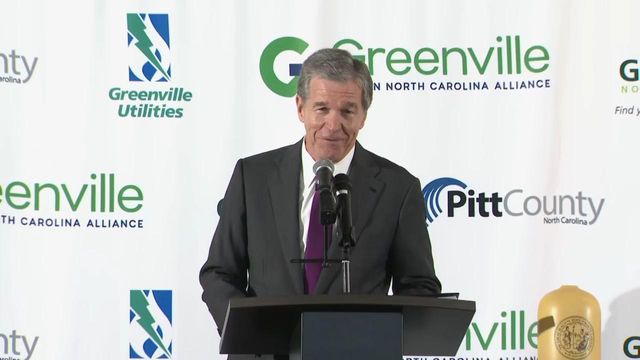5 things you may not know about buying local meat

This article was written for our sponsor, NC Choices.
From supply chain problems to inflation to the ethics of caring for farm animals, the issues surrounding meat may have led you to be one of the many people reevaluating how and where you buy it. You may even wish to support your local economy but not know how to do so when it comes to meat.
To help, here are five things you may not know about buying local meat — and the benefits it can have in your life.
You can search for local meat online to find a farmer near you
Buying meat from local farmers is easy with Meat Suite, a website that connects you with farmers. You can search for farms by zip code and preferences from anywhere in the state.
“Buying locally raised meat in bulk from a farm near you is not hard, expensive or complicated,” said Matt LeRoux, agriculture marketing specialist for NC Choices, an initiative that supports local pasture-raised meats.
Allowing individual consumers to buy meat this way is a major change from the past.
“Everybody will have an ‘in’ with a local farmer when they search Meat Suite,” said LeRoux.
You can buy in bulk
Buying from local farmers means you can buy a whole animal, half an animal or a quarter of an animal. Even just a quarter cow is about 100 pounds of meat in a variety of steaks, roasts, ground beef and stew meat.
“Having that supply on hand is great,” said LeRoux. “You may need a spare freezer, but now you have a great variety of meat to plan your meals with.”
Additionally, by buying in bulk, you can spread the cost of certain high-value cuts across more of the animal, giving you an affordable and easily fixed price per pound.
“For the consumer, they are getting a great price,” said LeRoux. “When they buy in bulk, they are getting all those pounds at a great price and a full variety of cuts. If they had gone out and bought all those cuts individually, it would have cost a lot more.”
You can customize
When searching on Meat Suite, you can find the kind of meat you want and farms that offer other attributes and certifications such as animal welfare approved, organic, pasture-raised animals and so on.
You also speak directly to the farmer so, when you order, you can specify how your meat is cut, asking for more lean or fatty cuts or for bone-in or bone-out cuts depending on what you prefer
You can extend your food supply
Global supply chain interruptions are less of a problem when you’re buying from local farmers and keeping a large supply of food at home.
“People do feel secure knowing that they have a store of meat in their freezer and farmers can provide that,” said LeRoux.
It’s also simpler to plan meals when you don’t have to constantly come up with something new to feed yourself and your family.
“People are eating more meals at home,” said LeRoux. “Maybe they're running out of ideas for meals. These cuts tell you what you’re going to have for dinner.”
You support the community
Buying from local farmers means your local area can maintain a robust economy.
“During the beginning of food shortages, people were finding the farmers,” said LeRoux. “They were showing up in driveways of farmers who don’t typically sell directly to consumers. If we want farmers to do that during times of need, we need to support them all the time.”
That support for farms then spreads exponentially.
“There’s something called the multiplier effect,” said LeRoux. “It’s the idea that you support a local farm with your purchase and, in turn, that farm is supporting several other local businesses because they’re buying fuel, parts for their farms, etc. Your dollars are multiplied.”
You also benefit by seeing where your food comes from.
“Because they're going to meet the farmer, they become more aware of the presence of agriculture in their community,” said LeRoux. “Next time they drive by, they’ll see the presence more in their community. They’ll appreciate where the meal comes from, and gain an appreciation for the farmers and what they do.”
This article was written for our sponsor, NC Choices.











